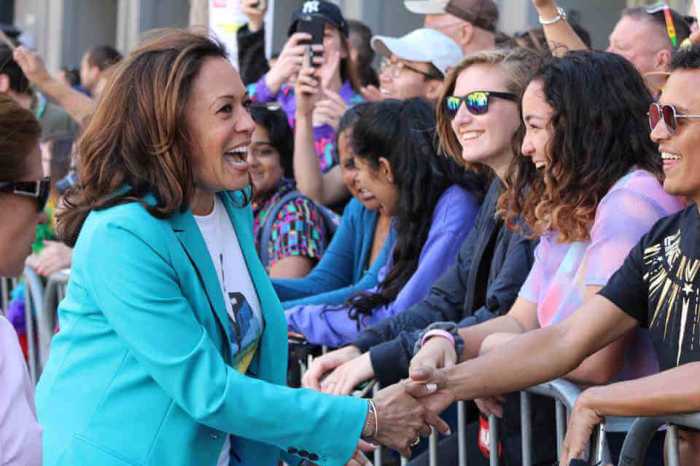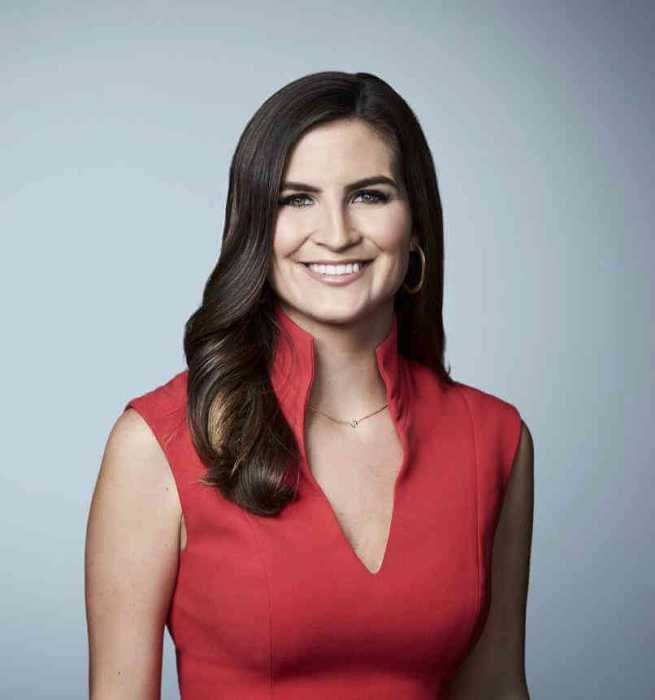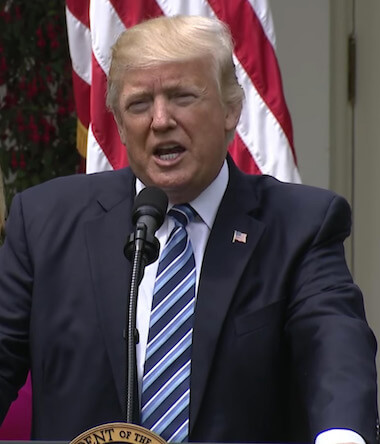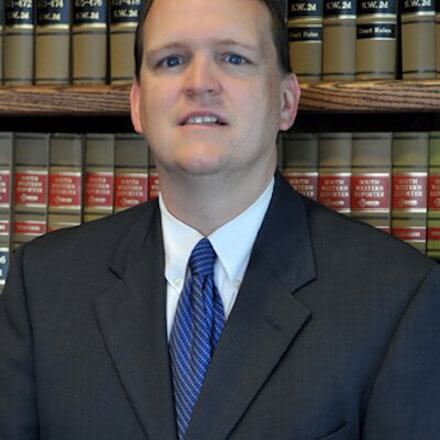BY PAUL SCHINDLER | “Coming in here, I felt, ‘I’m at home. I’m with my people.’”
Those were the opening words CNN anchor and reporter Don Lemon used as he mounted the podium to accept a Courage Award from the New York City Anti-Violence Project (AVP) on September 22. Before continuing his remarks, Lemon, 45 and the winner of four Emmys and an Edward R. Murrow Award, urged the crowd of roughly 150 to come closer. When the AVP poster on the front of the podium slipped to the ground, he waved off a woman who rushed to put it back in place, saying, “I don’t care about that.”
Lemon was focused on cementing his connection with his audience, and he joked, “I’m a TV anchor. I like being the center of attention.” The comment wasn’t off-putting in the least; in fact, it carried more than a hint of self-deprecation. He steered through the moment with considerable charm.
Coming out as gay, abuse survivor, CNN anchor talks transparency
In his remarks and a conversation that followed, Lemon came off as warm and genuine. Using his easy charisma to establish rapport seems important to him.
Which is a surprising observation about a man who wrote in his recent memoir, “Transparent,” “I find it hard to become close to people. I find it hard to trust. I feel myself ‘different’ in ways that aren’t always good.”
Those feelings, Lemon’s book explains, arise from the ongoing challenge of “eras[ing] the shame” of sexual abuse he suffered for a period of at least five years beginning when he was only five.
It was a year ago that Lemon first spoke publicly about that abuse, during a CNN interview with members of Bishop Eddie Long’s congregation at the New Birth Missionary Baptist Church in Georgia. At the time, Long was facing civil charges, since settled out of court, of having used his pastoral influence to coerce several young men affiliated with the church into sexual relationships.
Lemon wrote about his abuse in “Transparent,” which was also the first public forum in which he talked about being gay. Given the attention Lemon has received on both scores since the book came out this spring, his presence at the AVP seemed appropriate, especially since the group was also honoring its Domestic Violence Legal Clinic.
Lemon was not the victim of a family member, but like most targets of pedophilia, he knew his abuser. In fact, the perpetrator, who was in his late teens, was the son of a friend of his mother. Despite the loving support of his family as a youth, Lemon was unable to discuss what happened to him then with his mother until he was around 30 and had left his native Louisiana for New York. Here, he entered therapy and was surprised by what he learned about himself.
“I thought my problems were about being gay,” he told Gay City News. “And I realized that they were about the abuse.”
Lemon refrains from spelling out “the salacious details” of the abuse in the book, nor does he talk in too many particulars about being gay.
About his politics, all he says is that he is an admirer of the “Great Communicator,” Ronald Reagan, and that, asked on air by Wolf Blitzer how he felt at Barack Obama’s inauguration, he responded, “As an African American man, with an African American mother at home who is watching this moment, and I know, crying, I am absolutely overcome.”
But even that statement, Lemon writes, was too much for some observers, who as a result put him in what he calls “the black box,” a set of expectations — constraints, really — about the hows and whys of an African American man’s behavior and beliefs.
The black box worked at cross currents in his life. He withdrew from Louisiana State University because a journalism professor conveyed unmistakably his view that a black man was not suited for the news business. Yet, several years earlier, when he transferred from Catholic school to a public high school, Lemon’s fellow black students were suspicious of his friendship with white kids.
Lemon could have also coined the phrase “gay box.” When the management at the NBC affiliate where he worked in Chicago during the past decade rejected his story pitches about AIDS, he was told, “Viewers would question my sexuality or wonder if I had AIDS.”
Lemon has been outspoken about the racial inequalities and disconnects that continue to plague American life. Writing about Hurricane Katrina, he says, “New Orleans is still teaching us about how systematic, institutional racism kills.”
After lauding the diversity he encountered at AVP’s event, he told this reporter he often attends evenings hosted by gay groups where he is one of the few people of color in the room. Asked what he thinks is responsible for that, he replied, “I don’t know. I don’t understand it.”
Lemon is similarly frustrated by the resistance he finds among African Americans toward the LGBT community. “The black community still shows a high degree of intolerance for its gay brothers and sisters,” he writes — a sentiment for which, he said, he catches a good bit of flak.
Lemon talked with Gay City News the evening after Troy Davis’ execution in Georgia created a national media vigil over the possibility of a reprieve. This reporter asked about the coincidence of James Byrd, Jr.’s killer having been executed the same night in Texas.
“I think we missed an opportunity here,” Lemon said of the coverage of the two executions.
Only a few news reports noted the execution of Byrd’s killer, and what was largely ignored was the fact that Byrd was an African American man who had logging chains wrapped around his ankles before he was dragged over an asphalt road behind a pick-up truck to his death. Along with Matthew Shepard, the federal hate crimes law is named for Byrd.
Addressing the disparities in coverage, Lemon said, “It has to do with diversity in the news rooms. And there are reporters and producers who don’t remember who James Byrd was or are too young to have known.”
In his book, Lemon talks about traveling to Texas to cover the 2003 Space Shuttle Columbia explosion. “I found my mental wheels turning on a very different story,” he writes. “James Byrd was on my mind.” Visiting the culvert in Jasper where Byrd’s head and right arm were severed from his torso, he writes, “I shivered just looking at it.”
Lemon did not set out to write about his abuse or his identity as a gay man when he began work on “Transparent.” He told the AVP audience that he sought support from his boyfriend, Ben Tinker, who also works at CNN, in deciding to go public about being gay, and he explained to Gay City News, “This all took shape” only after talking about being abused on national television as he was working on the book.
“Never in a million years did I think I would talk about it,” he said of what he explained as a spontaneous decision to speak up on TV about his childhood experiences.
For some colleagues of Lemon’s, all this self-disclosure is too much. Asked whether peers had expressed disagreement with his public posture, he responded, “Absolutely.” And have there been management efforts to pull him back? “All the time.”
There are, of course, prominent journalists who have chosen not to speak about their homosexuality, no matter how widely known. The usual argument is that journalists should not be part of the story.
Lemon answers that perspective in his book.
“As a journalist, I’m a huge believer in transparency,” he writes. “I don’t like communication with a hidden agenda, and I don’t like people who conceal things to make themselves look better. Transparency in the process of obtaining information is critical.”


































